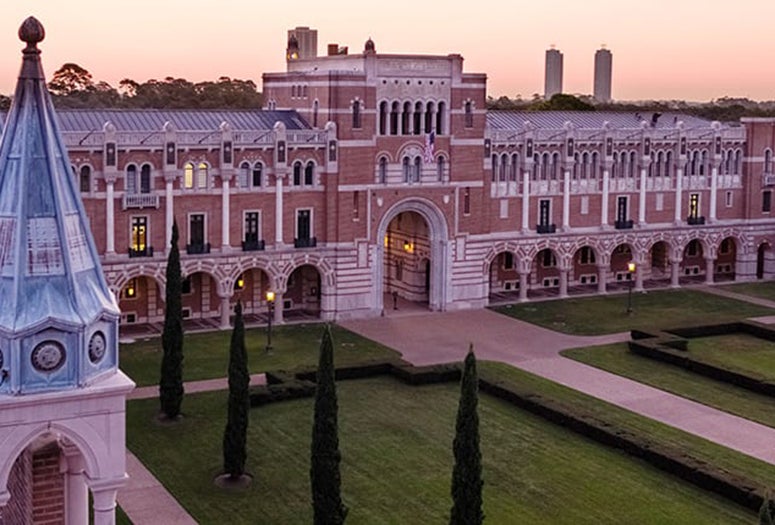President David Leebron and Provost Reginald DesRoches sent the following letter to Rice students, faculty and staff June 23:
We are writing today in response to a list of actions recently proposed and publicized by a group of our Black students on how to improve the Black experience at Rice. As we communicated to the students who shared this document with us on Friday, we will certainly take these under consideration and construct a process for further engagement with all members of our community on these issues, including students, faculty, staff and alumni. As the group of students who submitted the document to us on Friday stated, “these ideas have been compiled into a list” and “there are many tangible ideas to explore to potentially improve the Black experience at Rice.” We agree. Many of the actions are already underway (we’ll report more comprehensively on those in a week or so), and others need such exploration, which we will undertake collaboratively.
One item on the list of demands that has received particular attention involves a call to remove the statue of William Marsh Rice from the academic quadrangle. Many of those writing to us have supported the removal of the statue, but a diverse group of other students and alumni have written against the removal (while also speaking out in favor of measures to achieve greater equity and inclusion), or have suggested alternative approaches to addressing the issues raised by the statue. Most of these communications have been thoughtful and strongly felt. Most heartening to see is that nearly all who wrote, regardless of views expressed on the removal of the statue, did so in the spirit of creating a stronger and more inclusive community at Rice. We are grateful that our students and alumni care deeply about the university, and work to make it more inclusive and supportive of all of our students.
Our process for formally recognizing and continuing to move forward from the racist aspects of our institution’s founding began last June, when we created a Task Force on Slavery, Segregation and Racial Injustice, co-chaired by Alex Byrd and Caleb McDaniel. That group, which includes representatives from our faculty, staff, students and alumni, began work in January and has been carrying out its charge to implement “a plan for discovering, documenting, acknowledging and disseminating Rice’s past with respect to slavery, segregation and racial injustice, as well as an understanding of how that history may continue to inform and shape the present state of the university.” That history includes William Marsh Rice’s role as a slaveholder, and the terrible racist provision of the founding charter that excluded non-white students until it was revised in 1964. The task force is organizing a program on “Movements, Monuments and Racism on Campus: A Conversation with Historians” on July 6 that will include discussing campus statues. The Task Force is also charged with identifying specific suggestions for actions “that will more fully realize our aspirations for a diverse and inclusive university,” and they must continue with this important work as we also address the actions we need to take now to support our Black students. We are currently undertaking a search for a Vice Provost for Diversity, Equity and Inclusion, who will help in assessing these and other recommendations to promote diversity, equity and inclusion in our community.
As we consider actions going forward, including those relating to the statue, it is important that we do so thoughtfully and that we respectfully engage with each other about difficult issues. As a university, we must set an example of intellectual candor, respect, moral values and a willingness to engage in the hard conversations that are a precursor to progress. We are always open to engaging in that dialogue with our students, but it is also important that we engage and create opportunities for participation from other parts of our community.
It is the right and duty of all in our community to contribute to discussion, decision-making and action. As university leaders, we must recognize diverse points of view and allow for dialogue as we make decisions. We have been made aware today that some students, in the course of supporting and discussing the proposal related to the Black experience at Rice, have been attacked in hateful terms through social media and other communications. Those attacks were extended to Black student organizations, even though it was made clear that the proposals did not come from those organizations. We condemn in unequivocal terms those who respond to the expression of proposals and ideas with hate and intolerance.
Again, we welcome the thoughtful contributions of all in our community and look forward to the conversations that will enable us to move forward together.

